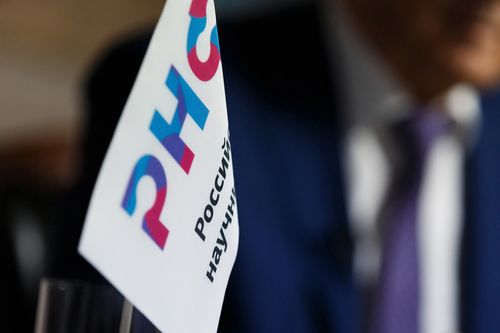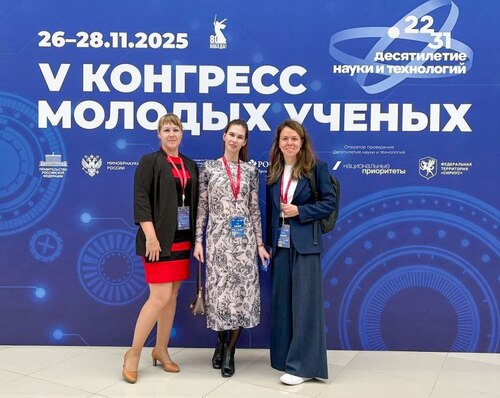In the second half of July, researchers from the Institute of Linguistics, Literature and History (ILLH) KarRC RAS undertook an expedition to the Tver Region. The scientists surveyed settlements in the Likhoslavl and Lesnoy Municipal Districts, as well as the Maksatikhinsky Municipal District. The purpose of the trip was to add content to the audio map on the VepKar language corpus platform, created by scientists from ILLH and the Institute of Applied Mathematical Research (IAMR) KarRC RAS. Anyone can use this resource as a full-fledged electronic dictionary, find their own settlement and listen to the dialect spoken by their ancestors.
The field team visited 11 villages and interviewed more than 50 informants, among them descendants of the Karelians whom researchers from Petrozavodsk had recorded back in the 1950s.
— These speech samples have already been uploaded to the VepKar speech corpus platform. However, Tver Karelia was only partially covered on the audio map. To supplement this database, we participated in an expedition competition of the Russian Geographical Society. The project “Filling the audio map of Karelian and Veps dialects” was supported by a grant. During the trip we recorded over 30 hours of Karelian speech samples on audio. In addition, we collected rich toponymic, folklore and ethnographic material, — told Irina Novak, Director ILLH KarRC RAS.
The scientists visited the Karelian farmstead in the village of Tolmachi, the school museum in the village of Lesnoye, the library in Gnezdov, and the House of Karelian Culture in the village of Stan, which is a member of the Association of the Most Beautiful Villages and Towns of Russia. Field team members interacted closely with local activists and discussed opportunities for further cooperation.
— We heard remarkable Karelian language in the Likhoslavl Districts and Maksatikhinsky District. We met informants who have a good command of the language, actively speak it among themselves, and easily switch from one language to another. The speakers have no language barrier, they did not need time to pick up words. In the village of Stan we were treated to a wonderful museum - the House of Karelian Culture. It struck us to the heart. The museum covers all aspects of people's life: lifestyle, culture, language. The situation in Lesnoy District is different, similar to what we find in some districts of Karelia. People who know Karelian understand the language, but answer in Russian. They no longer speak Karelian within their families, — shared Svetlana Nagurnaya, Head of Linguistics Section ILLH KarRC RAS.
There will be two more trips within this RGS project. In summer, scientists will travel to Prionezhye to collect samples of the Veps language. In the fall, researchers will interview descendants of Livvi and Ludic Karelians in central Karelia.
— During our trip to the Tver Region, we compiled a manual on collecting linguistic material. This technique is an important output of our scientific work, as the experience of compiling an audio map can be disseminated to other regions of the Russian Federation, — Irina Novak summed up.
On their visit to Tver Karelians scientists were joined by journalists from Vesti-Karelia program on Russia-1 TV channel, who are preparing a whole series of stories based on the results of the field trips.
News

July 4, 2024
VepKar audio map supplemented with Tver Karelian speech samples
Researchers from the Institute of Linguistics, Literature and History (ILLH) KarRC RAS are back from expedition to the Tver Region. The scientists recorded over 30 hours of Karelian speech samples and interviewed more than 50 informants. The trip was organized within the project “Filling the audio map of Karelian and Veps dialects”, supported by the Russian Geographical Society. Together with the scientists, Tver Karelians were visited by journalists from the Vesti-Karelia program of the Rossiya-1 TV channel.
Researchers from the Institute of Linguistics, Literature and History (ILLH) KarRC RAS are back from expedition to the Tver Region. The scientists recorded over 30 hours of Karelian speech samples and interviewed more than 50 informants. The trip was organized within the project “Filling the audio map of Karelian and Veps dialects”, supported by the Russian Geographical Society. Together with the scientists, Tver Karelians were visited by journalists from the Vesti-Karelia program of the Rossiya-1 TV channel.
See also:

December 2, 2025
Citizens of Karelia can help scientists explore early-stage disorders and risks of developing serious diseases
Scientists invite volunteers aged 40–59 to take part in a large-scope region study seeking to identify early markers of the yet silent disorders that may later evolve into cardiovascular and metabolic diseases. Participants will be asked to give a single blood sample for key laboratory tests. The results can be collected in person or via email. In the long term, this work will enable scientists and medical professionals to detect the threat of serious diseases as early as possible.
Scientists invite volunteers aged 40–59 to take part in a large-scope region study seeking to identify early markers of the yet silent disorders that may later evolve into cardiovascular and metabolic diseases. Participants will be asked to give a single blood sample for key laboratory tests. The results can be collected in person or via email. In the long term, this work will enable scientists and medical professionals to detect the threat of serious diseases as early as possible.

December 1, 2025
Russian Science Foundation supported Karelian scientists’ projects
Four grant applications submitted by scientists of the Karelian Research Centre RAS were approved by the Russian Science Foundation. The projects by Karelian researchers deal with issues such as building a methodology for the identification, monitoring, and protection of certain wetlands, increased mortalities among young farmed trout relocated to natural water bodies, assessing the anti-inflammatory properties of natural dietary supplements promising for trout farming, and reconstruction of the thermal history of the Earth's crust formation in northern Karelia and southern Murmansk Region.
Four grant applications submitted by scientists of the Karelian Research Centre RAS were approved by the Russian Science Foundation. The projects by Karelian researchers deal with issues such as building a methodology for the identification, monitoring, and protection of certain wetlands, increased mortalities among young farmed trout relocated to natural water bodies, assessing the anti-inflammatory properties of natural dietary supplements promising for trout farming, and reconstruction of the thermal history of the Earth's crust formation in northern Karelia and southern Murmansk Region.

November 28, 2025
Scientists of KarRC RAS took part in Young Scientists’ Congress at Sirius
A group of researchers from KarRC RAS took part in the 5th Young Scientists’ Congress held at the Sirius Federal Territory in Sochi. Over eight thousand participants from more than a hundred countries – early-career and renowned scientists, officials and businesspersons – worked actively at the plenary sessions and discussion grounds of this international scientific forum.
A group of researchers from KarRC RAS took part in the 5th Young Scientists’ Congress held at the Sirius Federal Territory in Sochi. Over eight thousand participants from more than a hundred countries – early-career and renowned scientists, officials and businesspersons – worked actively at the plenary sessions and discussion grounds of this international scientific forum.



